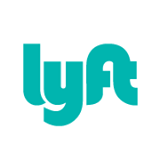Assuming there were no shenanigans, this is an impressive show of force.
A group looking to overturn an Austin ordinance requiring fingerprinting of ride-hailing drivers said Monday it has gathered more than 65,000 petition signatures, more than three times what it will need to force a possible election on a substitute ordinance.
Ridesharing Works for Austin, formed just three weeks ago by six nonprofits with support from Uber and Lyft, plans to submit 23,000 of those signatures — 15 percent more than the legal threshold of 20,000 registered voters — Tuesday to the Austin city clerk’s office. The clerk must verify if enough of them are registered and meet other petition requirements.
The other 42,000 or so signatures would be held in reserve in case more than 3,000 of the first batch are rejected by the clerk.
Once the clerk certifies that the minimum number of legal signatures have been turned in, the City Council would have 10 days to either adopt the revised ordinance or call for a public vote at the next regular election date, which is May 7. The council would have to call for an election by Feb. 19 to get on the May ballot. The next election date is in November.
City law does not say how long the city clerk may take to validate the signatures. In 2012, when about 33,000 signatures were turned in for a proposed city ballot initiative, the city clerk used about 10 days to validate the signatures.
Council Member Ann Kitchen, who as chairwoman of the council’s Mobility Committee spearheaded the push for requiring drivers to be fingerprinted for background checks, said she would not support council adoption of the substitute ordinance.
“At that point, I would want to go for an election,” Kitchen said Monday. “I would want to hear what the people think.”
Kitchen said that the substitute ordinance from Ridesharing Works for Austin, aside from not requiring fingerprinting, would eliminate other elements of the ordinance passed by the council Dec. 17. Ride-hailing cars would no longer need to have “trade dress” (signifiers of what company the driver is working for), and a requirement that pickups and drop-offs occur at the curb rather than in a travel lane would also be eliminated. Requirements for what data the companies must report to the city also would be much scaled back, Kitchen said.
See here and here for the background. As we know, Uber and Lyft do not like fingerprint requirements. They successfully pulled off this ploy in San Antonio by leaving town until they got an ordinance they preferred. Now that stricter rules, they’re taking the same tack, though with different tactics. I strongly suspect that if this initiative makes it to the ballot, it will pass in comfort.
There is some possibility for compromise:
Mayor Steve Adler has been working with high-tech executives to craft what he sees as an innovative way to thread the needle between mandatory fingerprinting of drivers and implacable resistance to it by industry leaders Lyft and Uber. Adler calls it Thumbs-Up Austin.
Adler and his kitchen cabinet of techies envision a nonprofit or a for-profit company that would build a “third-party, cross-platform badge validator” based on any number of measures of safety. Pointedly, Adler sees one of them being fingerprinting, and a background check based on that.
Then a peer-to-peer vendor like Uber or Lyft — or lodging app Airbnb, for that matter — could prominently display on the app or vehicles an indicator that a driver or homeowner passed that safety test.
Of course, participation in this would be voluntary, so it’s unclear how much of an effect it would have. And that’s assuming it makes it past the conceptual phase and into an actual product, which these outfits would buy into using. It’s not a bad idea, but I wouldn’t hold my breath. The Trib has more.



why don’t they just have them follow the same regulations that already apply to cab companies and their drivers?
oh wait, because that would be obviously fair.
Pingback: Maybe the state should regulate Uber and Lyft after all – Off the Kuff